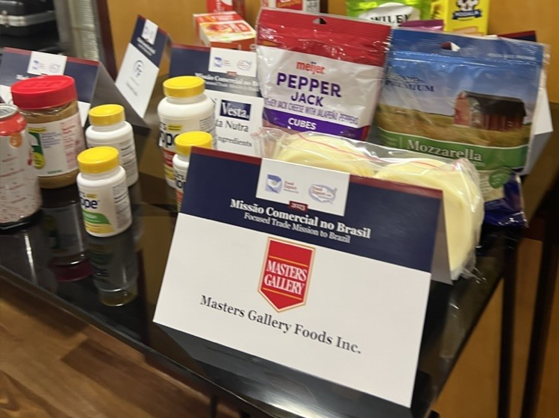Dear Steakholders
Dear Stakeholders:
As we continue to navigate the challenges of the COVID-19 pandemic, the U.S. Department of Agriculture (USDA) has been focused not just on homeland preparedness and response, but also on the impact to the international landscape, including agricultural trade.
Agricultural trade is vital to the health of the rural economy and the U.S. economy as a whole, as well as to the wellbeing of people across the globe. The U.S. agricultural industry has always taken pride in its ability to provide the world with high-quality, cost-competitive food, feed, fuel, and fiber. And even in the midst of a global pandemic, that commitment is unwavering. America’s farmers and ranchers – and the industries they supply – continue to show up for work.
The United States has abundant food supplies and, as such, we also continue to serve and seek out foreign markets. The United States has extensive stocks of grains, oilseeds, and cotton and production of meat and specialty crops continues every day. We are open for business and ready to help countries meet their needs.
Here at USDA our day-to-day work continues, even if it looks a little different right now. The Foreign Agricultural Service (FAS) has had to make some adjustments to its overseas operations, including placing some staff in temporary telework status or temporarily relocating them to Washington, D.C., or elsewhere. But FAS staff worldwide continue to monitor and report on agricultural trade and production, including the impacts of COVID-19, and they continue to advocate for the interests of U.S. agriculture around the world.
FAS continues to provide ongoing market intelligence to U.S. agricultural stakeholders through daily and weekly monitoring and reporting of export sales, through a steady flow of GAIN reports from our overseas posts, and by gathering and analyzing global trade and production data in preparation for USDA reports and forecasts. FAS staff around the world also continue to monitor and report on trade policy developments and priorities, including implementation of the U.S.-China Phase One trade deal.
While some planned USDA trade missions and other international activities have been postponed, we hope to be able to reschedule them in the not-too-distant future. In the meantime, we are working closely with our U.S. agricultural industry cooperators and other stakeholders to continue international market development efforts to the extent possible.
We also know that border and port closings and other measures taken by governments worldwide create questions for U.S. producers. USDA is monitoring the ever-changing situation and continuing to engage with our international trading partners to help minimize the impacts to trade and global food security. We, along with Secretary Perdue and other USDA leaders, remain in close contact with our governmental counterparts around the world.
We extend our sincerest thanks to our nation’s farmers, ranchers, and exporters – and to the dedicated USDA staff around the globe – who persevere despite the current challenges to ensure that we remain able to “Do Right and Feed Everyone.”
| Ted McKinney Under Secretary Trade and Foreign Agricultural Affairs |
Ken Isley Administrator Foreign Agricultural Service |


